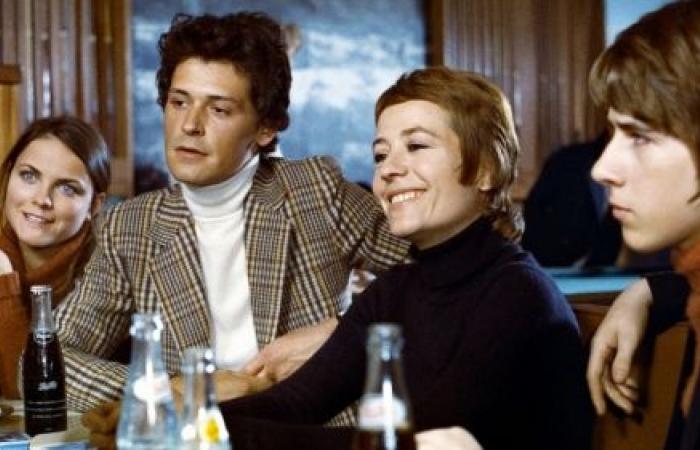This Monday, December 9, Arte broadcasts Die to lovea moving film directed by André Cayatte with Annie Girardot in the lead role. But is this one inspired by a true story?
“While the world judges us. I only see a refuge for us. Any outcome being doomed. Die to love”sang Charles Aznavour in Die to love on the album No, I haven’t forgotten anything in 1971. If the link between this hit and the film Mourir d’aimer by André Cayatte, released the same year, has never been established, it turns out that they are talking about the same story: that of a professor who begins an intimate relationship with one of his students. A forbidden love embodied on screen by Annie Girardot, who plays the role of Danielle, a 36-year-old teacher who lets herself be won over by passion by spending time with one of her students, Gérard, aged 16 and a half. . But when the teenager’s parents discovered this relationship, they filed a complaint for embezzlement of a minor against the teacher.
Broadcast this Monday, December 9 on Arte, Die to love warns at the opening: “As the characters in this film are imaginary, any resemblance to living or existing people is purely coincidental.” However, its resemblance to a news item which had a profound impact on French justice, and led to a real social debate, prompts the comparison. When in the spring of 1968, while France was heating up with large demonstrations and a general strike, Gabrielle Russer, a literature teacher, began a relationship with one of her students, Christian Rossi, aged 15.
How does Gabrielle Russer’s story end?
Opposed to this relationship, the young man’s parents filed a complaint against Gabrielle Russer, who was arrested and imprisoned before appearing before the Marseille criminal court. She was then sentenced to twelve months in prison, a fine of 1,500 francs and one franc in symbolic damages for Christian Rossi’s parents. Forever marked by this story, which was recorded in her criminal record, Gabrielle Russer committed suicide on September 1, 1969 in her apartment in Marseille by asphyxiating herself with gas. “It was love. […] We loved each other, we put her in prison, she killed herself. It’s simple”had confided Christian Rossi to New Observer in 1971, while this story triggered a controversy in France relating to romantic relationships, consent and the age of sexual majority.






